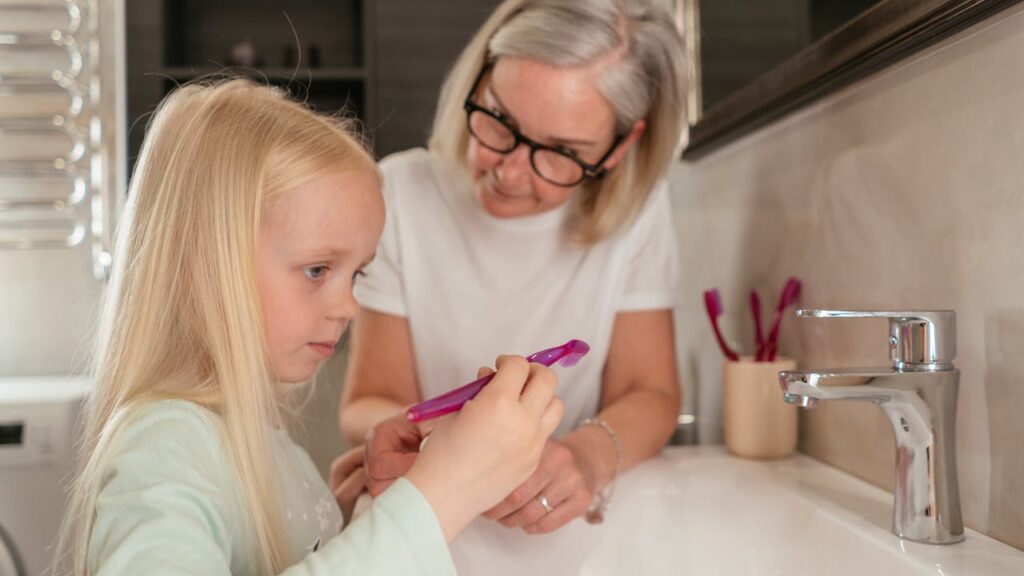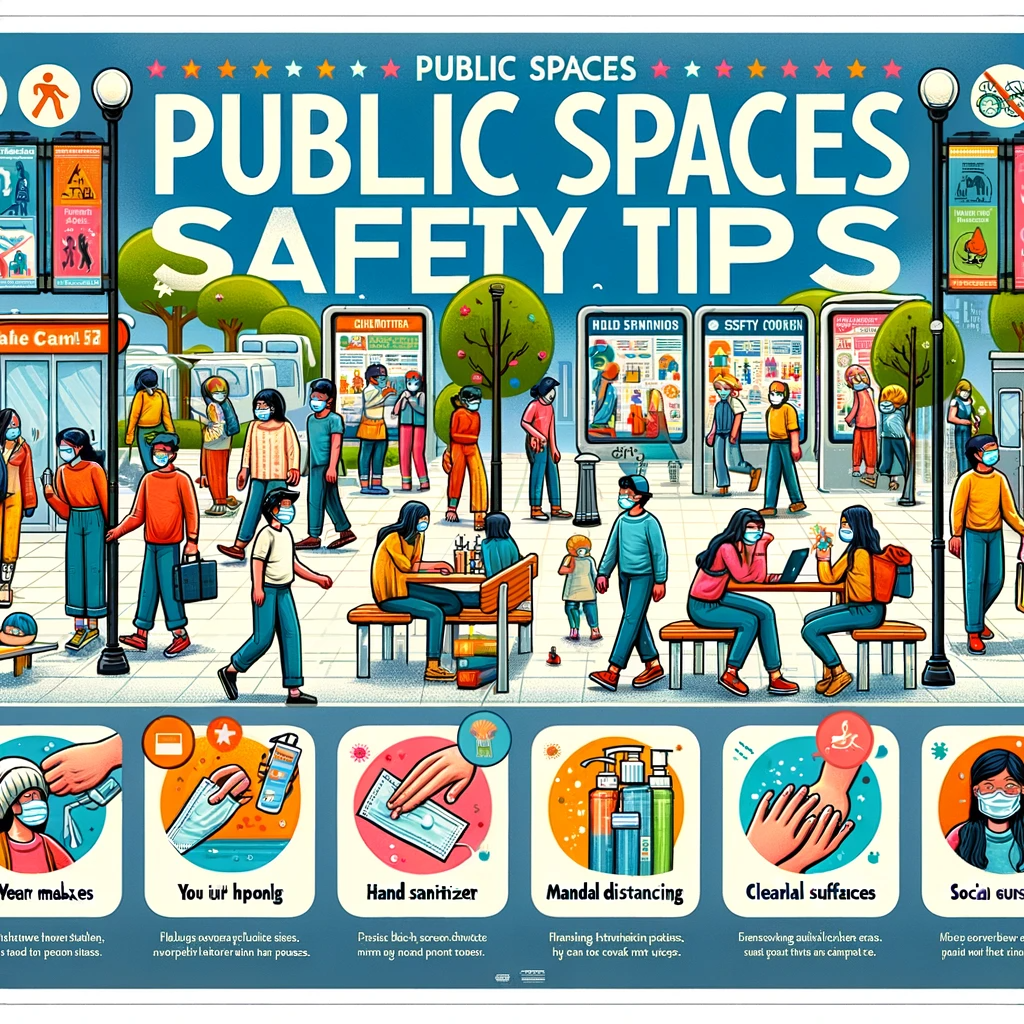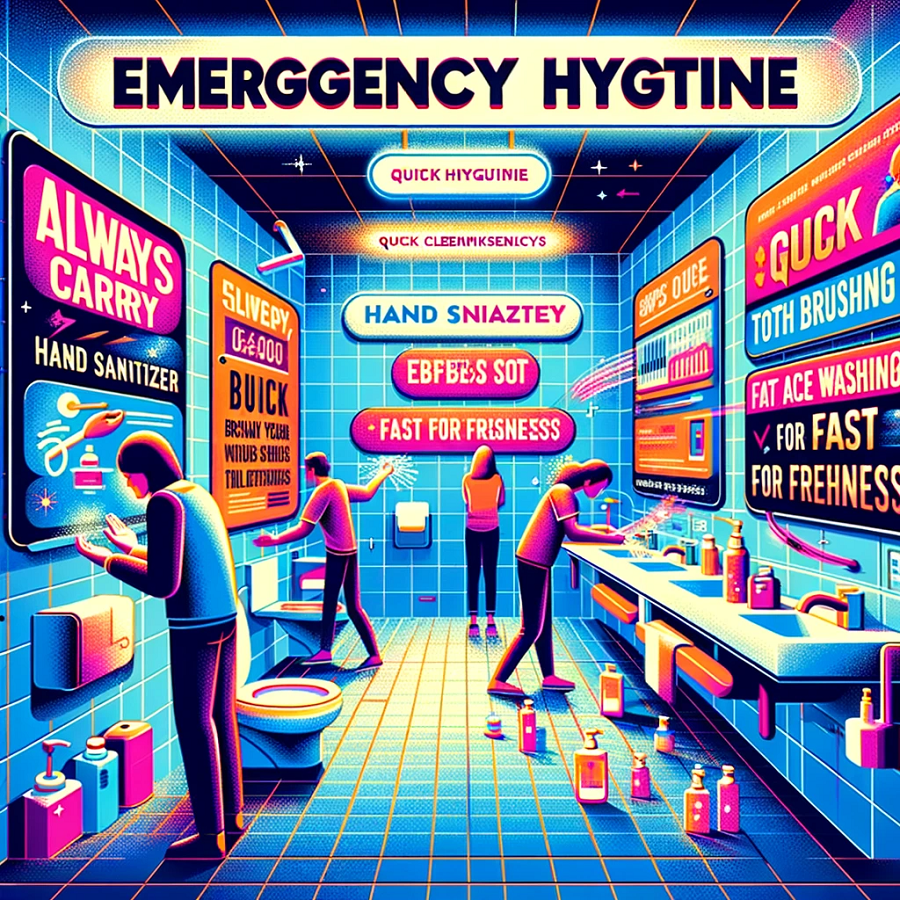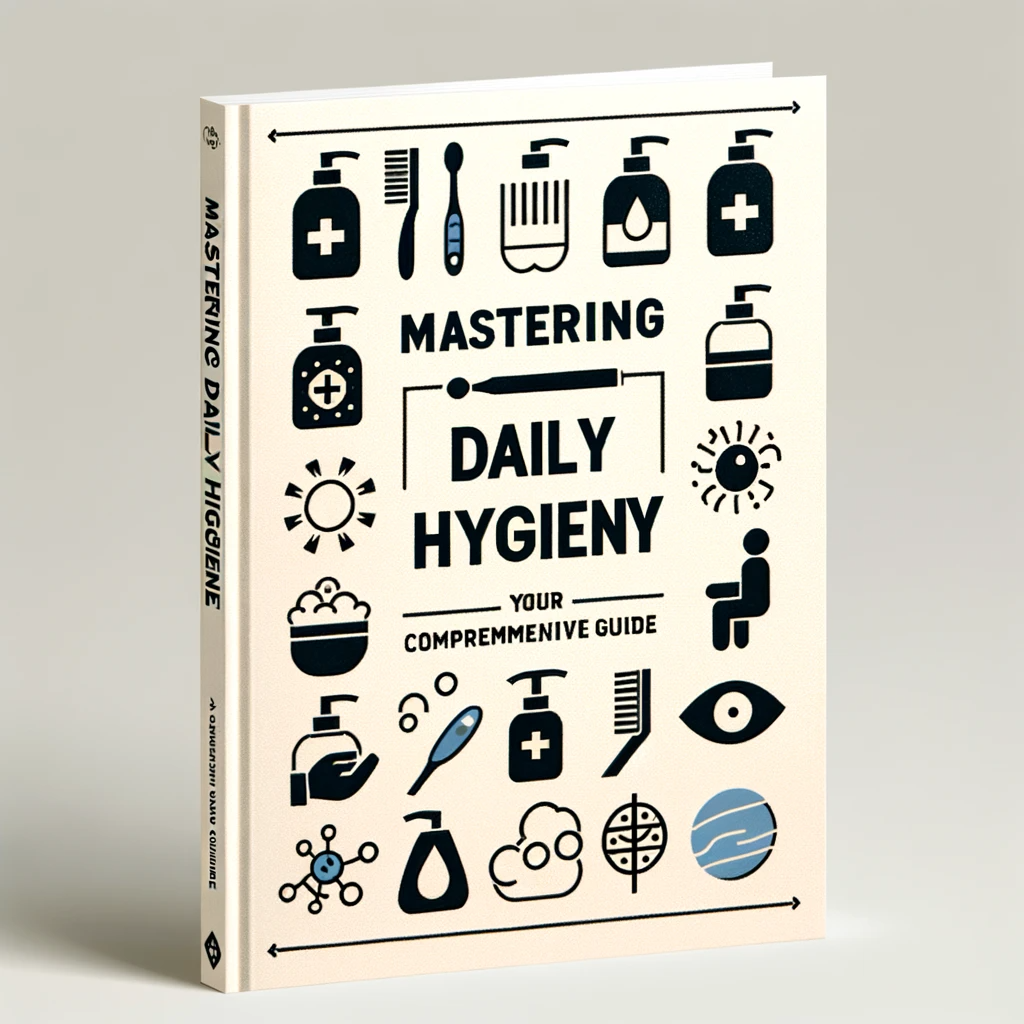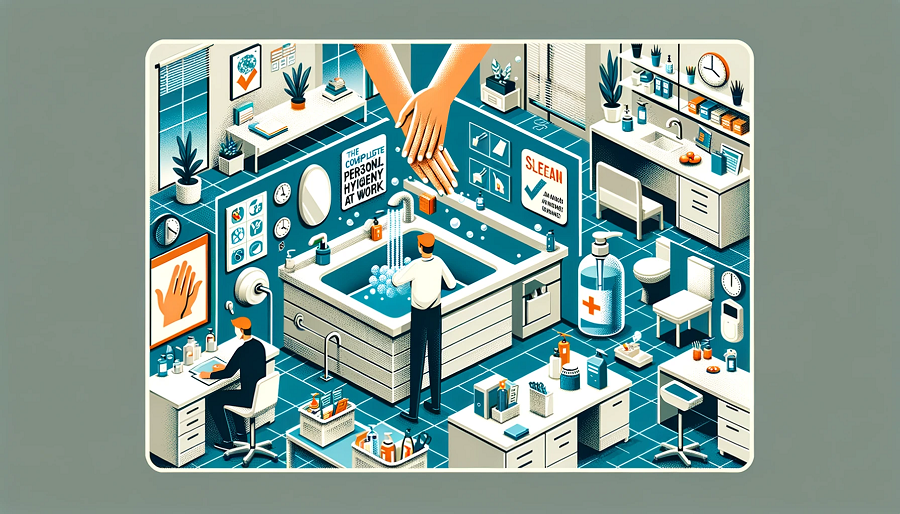The Significance of Personal Hygiene for Kids
Personal hygiene plays a pivotal role in our daily lives, and instilling good hygiene habits in children from a young age is of paramount importance. These habits not only keep children healthy but also lay the foundation for a lifetime of well-being and self-confidence. In this article, we will explore the significance of personal hygiene for kids and provide practical tips on creating a hygiene routine, emphasizing the importance of handwashing, and discussing dental care for children.
Creating a Hygiene Routine for Kids
Establishing a consistent hygiene routine is the first step in teaching kids about personal hygiene. Children thrive on structure and predictability, and having a set schedule for hygiene activities can make this aspect of their lives more manageable and enjoyable.
- Create a Visual Schedule: Make hygiene routines fun and engaging by creating a visual schedule or checklist. Use colorful pictures and stickers to represent tasks like brushing teeth, washing hands, and taking baths. This visual aid will help kids understand what needs to be done.
- Set Consistent Times: Determine specific times for hygiene activities, such as morning and bedtime routines. Consistency reinforces the importance of these habits and makes them a part of a child’s daily life.
- Lead by Example: Children often learn by observing their parents or caregivers. Be a role model by demonstrating proper hygiene practices. When children see adults taking care of their hygiene, they are more likely to follow suit.
- Make It Fun: Turn hygiene routines into enjoyable activities. Use colorful and child-friendly products, sing songs during toothbrushing, or use themed hand soap dispensers to make handwashing exciting.
Handwashing: The Foundation of Personal Hygiene
Handwashing is one of the most crucial aspects of personal hygiene, especially for children who are constantly exploring their environment and coming into contact with germs. Teaching kids the importance of thorough handwashing can prevent the spread of illnesses.
- The 20-Second Rule: Teach your children the 20-second rule – they should scrub their hands with soap and water for as long as it takes to sing “Happy Birthday” twice. This simple guideline ensures that they wash their hands thoroughly.
- Use Child-Friendly Soap: Invest in child-friendly soap with appealing scents or colors to make handwashing more enjoyable. Let your child choose their soap, which can make them more excited about the process.
- Explain the Why: Children are curious by nature. Explain to them why handwashing is essential, emphasizing that it helps remove germs that can make them sick. Use age-appropriate language to convey the message effectively.
- Handwashing Times: Encourage handwashing at key times, such as before meals, after using the restroom, and after outdoor play. Consistent handwashing routines help reinforce good habits.
The Toothbrush Tango: Dental Care for Kids
Dental care is another critical aspect of personal hygiene, and it’s essential to start good oral hygiene habits early to ensure a lifetime of healthy teeth and gums.
- Child-Sized Toothbrush: Use a child-sized toothbrush with soft bristles for your kids. These brushes are designed to fit comfortably in small mouths and are less likely to cause discomfort.
- Age-Appropriate Toothpaste: Choose age-appropriate toothpaste with fluoride. For children under three, a smear of toothpaste is sufficient, while children aged three and older can use a pea-sized amount.
- Brushing Technique: Teach your children the proper brushing technique. Show them how to brush gently in circular motions, reaching all surfaces of their teeth. Supervise their brushing until they can do it independently.
- Regular Dental Checkups: Schedule regular dental checkups for your child. Starting early with dental visits instills the importance of oral health and allows any potential issues to be addressed promptly.
Keeping It Fresh: Teaching Kids About Bathing and Showering
Bathing and showering are essential components of personal hygiene, and teaching kids about them is a crucial step towards ensuring their overall cleanliness and well-being.
- Start Early: Begin teaching your child about bathing and showering from an early age. Babies can have gentle sponge baths, and as they grow, you can transition to more traditional bathing methods.
- Explain the Importance: Help your child understand why bathing and showering are necessary. Explain that it helps remove dirt, sweat, and germs from their bodies, keeping them clean and healthy.
- Age-Appropriate Products: Use age-appropriate soaps and shampoos that are gentle on your child’s skin and hair. Be mindful of any allergies or sensitivities they may have.
- Supervision: Initially, supervise your child during bath or shower time to ensure they use soap, shampoo, and water effectively. As they grow, gradually give them more independence.
- Fun and Relaxation: Make bath time enjoyable by adding toys or playing soothing music. Create a positive association with bathing, and your child is more likely to embrace it as a daily routine.
Clean Clothes, Happy Kids: The Role of Laundry in Personal Hygiene
Clean clothes are not just a matter of fashion; they are a fundamental aspect of personal hygiene. Teaching kids about the importance of clean clothing ensures they understand how it contributes to their overall well-being.
- Change Daily: Teach your child to change their clothes daily. Explain that fresh clothes help prevent the buildup of dirt and sweat on their skin.
- Sorting and Laundry Basics: As your child grows, involve them in the laundry process. Teach them how to sort clothes, use the washing machine, and fold clean laundry.
- Stain Removal: Show your child how to handle stains effectively. Explain that prompt stain removal helps keep clothes looking and smelling fresh.
- Seasonal Wardrobe: Teach your child the importance of seasonal clothing changes. Explain that wearing appropriate clothing for the weather helps them stay comfortable and healthy.
- Personal Responsibility: Encourage your child to take responsibility for their clothing. As they become more independent, let them pick out their outfits and get dressed on their own.
Nurturing Healthy Habits: Encouraging Kids to Practice Good Hygiene
Encouraging kids to practice good hygiene is not just about teaching them the basics; it’s also about fostering a positive attitude towards cleanliness and well-being.
- Positive Reinforcement: Praise your child for their hygiene efforts. Use encouraging words and remind them of the benefits of staying clean, such as feeling fresh and preventing illness.
- Engaging Resources: Utilize age-appropriate books, videos, and games that emphasize hygiene in a fun and engaging way. Learning through play can be highly effective.
- Regular Reminders: Children often need gentle reminders. Establish routines that include hygiene practices and incorporate them into daily life.
- Setting Goals: Help your child set hygiene goals. For example, they can aim to brush their teeth without reminders or remember to wash their hands before every meal.
- Lead by Example: As with other aspects of personal hygiene, be a role model for your child. Demonstrate good hygiene habits in your daily life, and they will likely follow suit.
Addressing Special Considerations: Hygiene for Kids with Sensory Issues
Some children may have sensory sensitivities that make personal hygiene challenging. It’s essential to approach this situation with patience and understanding.
- Observation and Communication: Pay close attention to your child’s reactions to hygiene routines. Communicate openly with them about any discomfort or sensory issues they may be experiencing.
- Seek Professional Guidance: If your child has significant sensory challenges related to hygiene, consider seeking advice from pediatric specialists or occupational therapists. They can provide strategies and techniques to make hygiene routines more manageable.
- Gradual Exposure: Introduce sensory-sensitive children to hygiene routines gradually. Start with shorter and less intense sessions, gradually increasing the duration as they become more comfortable.
- Alternative Products: Explore alternative hygiene products designed for sensitive skin or sensory needs. For example, there are specially designed toothbrushes or bathing products that can be gentler on a child’s senses.
Final Thoughts:
Personal hygiene is a crucial aspect of a child’s overall well-being, and teaching kids about it is an investment in their health and confidence. We’ve covered various elements, from creating hygiene routines and the significance of handwashing to dental care, bathing, and maintaining clean clothes. We’ve also discussed strategies for nurturing healthy hygiene habits and addressing the needs of children with sensory sensitivities. By instilling these practices and attitudes from an early age, we empower our children to lead healthier, more self-assured lives. Remember that teaching personal hygiene to kids is not just about cleanliness; it’s about building a foundation for their future well-being.
FAQs:
Q1: Why is personal hygiene important for children?
A1: Personal hygiene is essential for children because it helps prevent the spread of illness, promotes physical well-being, and boosts their self-confidence and self-esteem.
Q2: How can I create a hygiene routine for my child?
A2: Creating a hygiene routine involves setting consistent times for activities like handwashing, toothbrushing, bathing, and changing clothes. You can use visual schedules or checklists to make it engaging for kids.
Q3: What is the right way to teach kids about handwashing?
A3: Teach kids to wash their hands with soap and water for at least 20 seconds, explaining the importance of removing germs. Child-friendly soap and fun songs can make handwashing more enjoyable.
Q4: When should I start teaching my child about dental care?
A4: Dental care should begin as soon as the first tooth appears. Use a child-sized toothbrush and age-appropriate toothpaste with fluoride. Supervise brushing until they can do it independently.
Q5: How can I make bath time enjoyable for my child?
A5: You can make bath time fun by adding toys, playing soothing music, and creating a positive association with bathing. Ensure the water temperature is comfortable and safe.
Q6: What role does clean clothing play in personal hygiene?
A6: Clean clothes are essential because they help prevent the buildup of dirt and sweat on the skin. Teach your child to change their clothes daily and engage them in basic laundry routines as they grow.
Q7: How can I encourage my child to practice good hygiene habits?
A7: Positive reinforcement, age-appropriate resources, regular reminders, goal-setting, and leading by example are effective ways to encourage kids to practice good hygiene.
Q8: What should I do if my child has sensory issues related to hygiene?
A8: If your child has sensory sensitivities, observe their reactions, seek professional guidance from specialists or therapists, introduce routines gradually, and consider using sensory-friendly products.

